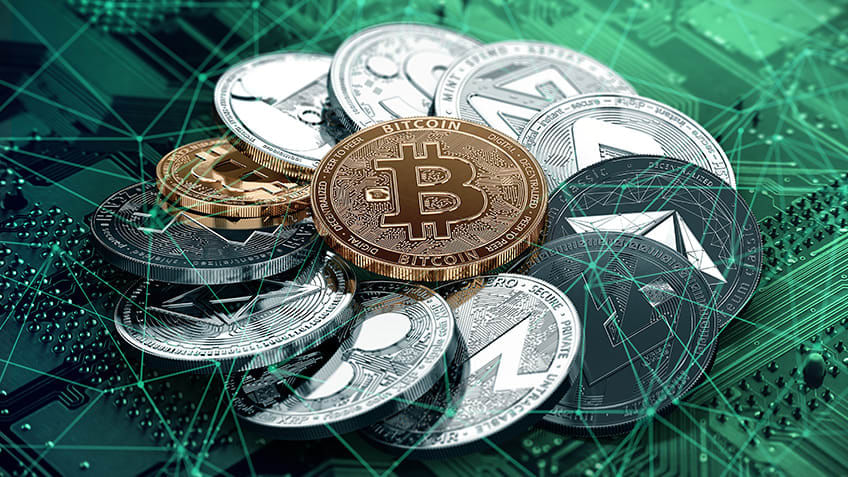Pi network cryptocurrency
NFTs are multi-use images that are stored on a blockchain. They can be used as art, a way to share QR codes, ticketing and many more things. The first breakout use was for art, with projects like CryptoPunks and Bored Ape Yacht Club gaining large followings https://parcdeschutesarmagh.com/. We also list all of the top NFT collections available, including the related NFT coins and tokens.. We collect latest sale and transaction data, plus upcoming NFT collection launches onchain. NFTs are a new and innovative part of the crypto ecosystem that have the potential to change and update many business models for the Web 3 world.
Bitcoin is the oldest and most established cryptocurrency, and has a market cap that is larger than all of the other cryptocurrencies combined. Bitcoin is also the most widely adopted cryptocurrency, and is accepted by practically all businesses that deal with cryptocurrency.
IEO stands for Initial Exchange Offering. IEOs share a lot of similarities with ICOs. They are both largely unregulated token sales, with the main difference being that ICOs are conducted by the projects that are selling the tokens, while IEOs are conducted through cryptocurrency exchanges. Cryptocurrency exchanges have an incentive to screen projects before they conduct a token sale for them, so the quality of IEOs tends to be better on average than the quality of ICOs.
What is cryptocurrency
Cryptocurrencies are legal in the European Union. Derivatives and other products that use cryptocurrencies must qualify as "financial instruments." In June 2023, the European Commission's Markets in Crypto-Assets (MiCA) regulation went into effect. This law sets safeguards and establishes rules for companies or vendors providing financial services using cryptocurrencies.
In March 2021, South Korea implemented new legislation to strengthen their oversight of digital assets. This legislation requires all digital asset managers, providers and exchanges to be registered with the Korea Financial Intelligence Unit in order to operate in South Korea. Registering with this unit requires that all exchanges are certified by the Information Security Management System and that they ensure all customers have real name bank accounts. It also requires that the CEO and board members of the exchanges have not been convicted of any crimes and that the exchange holds sufficient levels of deposit insurance to cover losses arising from hacks.
Fiat currencies derive their authority from the government or monetary authorities. For example, the U.S. dollar is recognized and issued by the government as the official currency of the United States and is "legal tender."
Each participating computer, often referred to as a “miner,” solves a mathematical puzzle that helps verify a group of transactions—referred to as a block—then adds them to the blockchain ledger. The first computer to do so successfully is rewarded with a small amount of cryptocurrency for its efforts. Bitcoin, for example, rewards a miner 6.25 BTC (which is roughly $200,000) for validating a new block.
It’s essentially a decentralized network, also called a distributed-ledger technology (DLT). This means there is no single authority serving as a gatekeeper or facilitator for the transactions taking place within the network.
Cryptocurrencies are digital assets that are secured by cryptography. As a relatively new technology, they are highly speculative, and it is important to understand the risks involved before investing.

Cryptocurrency bitcoin price
Bitcoin’s public distributed ledger, or blockchain, is made up of many ‘blocks’, each containing an SHA-256 cryptographic hash of the previous block all the way back to the genesis block mined on Jan 03, 2009.
A few years ago, the idea that a publicly traded company might hold Bitcoin on its balance sheets seemed highly laughable. The flagship cryptocurrency was considered to be too volatile to be adopted by any serious business. Many top investors, including Warren Buffett, labeled the asset a “bubble waiting to pop.”
A hard fork is a radical change to the protocol that makes previously invalid blocks/transactions valid, and therefore requires all users to upgrade. For example, if users A and B are disagreeing on whether an incoming transaction is valid, a hard fork could make the transaction valid to users A and B, but not to user C.
In reality, this is a lot faster than the traditional financial system. While financial service providers, especially credit card companies, advertise instant transactions, these transactions are only reflected instantly, although they take days to actually settle. Bitcoin, meanwhile, settles in just ten minutes.
A soft fork is a change to the Bitcoin protocol wherein only previously valid blocks/transactions are made invalid. Since old nodes will recognise the new blocks as valid, a soft fork is backward-compatible. This kind of fork requires only a majority of the miners upgrading to enforce the new rules.
